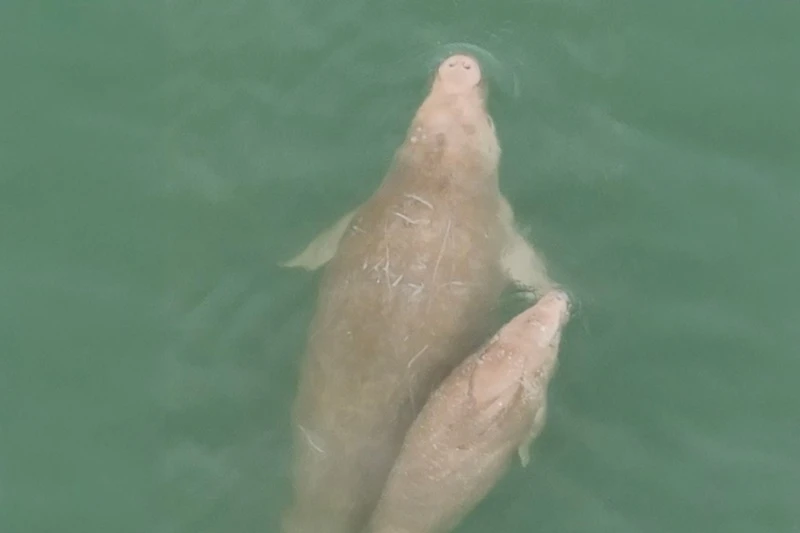Phuket takes action to protect migrating dugongs near Rawai Beach

Phuket is taking decisive steps to protect around 30 dugongs that have migrated from the coasts of Trang and Krabi to areas near Rawai Beach. The initiative comes as a response to the urgent need to safeguard these marine creatures, which have been facing threats due to dwindling food sources and environmental challenges.
Phuket Governor Sophon Suwanrat recently held a meeting with the Department of Marine and Coastal Resources (DMCR) and other stakeholders. The discussion focused on strategies to support the dugongs now inhabiting the southern and western coasts of Phuket, said Sophon.
“We will form a working group and a patrol unit together with the DMCR.”
Sophon explained that the Marine and Coastal Resources Office would play a crucial role in mapping dugong sighting locations and designating fishing net-prohibited zones. This initiative aims to prevent the dugongs from getting entangled in fishing nets, which can lead to fatalities.
The Marine Department, Fisheries Department, and Provincial Natural Resources and Environment Office are tasked with raising awareness among the public. They will focus particularly on fishermen, tour operators, and speedboat service providers, urging them to exercise caution in these sensitive areas, said Sophon.
“We must ask for cooperation from all coastal fishermen and those living along the coast and the public to protect the dugongs.”
To facilitate public involvement, the province plans to set up a LINE group called Love Phuket Dugongs. This platform will allow citizens to share real-time information about dugong sightings around the island, enhancing community engagement in conservation efforts.
Migrating dugongs
The DMCR has also committed to planting seagrass and exploring alternative food sources for the dugongs. Plans are underway to establish sea enclosures to care for sick dugongs, providing a controlled environment for their recovery.
Each dugong will be assigned a name based on its physical traits, aiding in data collection and tracking their movements, Sophon said.
“Those dugongs migrate to our area for food as the seagrass around Trang has been dying and rotting due to the impact of climate change. Some dugongs are so thin you can even see their spines.”
DMCR Director General Pinsak Suraswadi added that dugongs are protected animals but are currently in a precarious situation due to a significant number of deaths—33 this year in Thailand alone. This underscores the necessity for collective efforts to ensure the dugongs receive adequate nourishment amidst the seagrass shortage, said Pinsak.
“We projected four to five months ago that Trang and Krabi would have limited food sources for them.”
He further explained that Phuket and Phang Nga are now the primary migration targets for the dugongs, and monitoring their movements is crucial, reported Bangkok Post.
“We are also informing local people about the arrival of dugongs to foster cooperation to better protect them.”
Latest Thailand News
Follow The Thaiger on Google News:


























